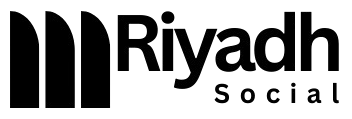Zinc Deficiency Symptoms and Compensations

What are the Symptoms of Zinc Deficiency?
Minerals are one of the basic nutrients the body needs to perform many vital processes. Minerals play a vital role in maintaining body and health functions in general, some of which contribute to hormones, bone building, and heartbeat. To enhance the work and importance of these minerals, it is necessary to take care to eat a healthy and balanced diet daily; The fact that the minerals are not present inside the human body, and the body does not manufacture it, but rather is obtained from some natural nutritional sources.
What are the Symptoms of Zinc Deficiency?
Al Arabiya.net quoted Times of India, to a "sudden" group of symptoms as they put it due to the lack of zinc metal in the body from its normal levels. These are symptoms that indicate the body’s lack of this basic and necessary element.
These symptoms come as follows:
- Repeated colds and infection
- Slower wound healing
- Loss of tasting and smelling
- Hair loss and dance
- Acne and eczema
- Severe weight loss
- Appearance of white spots on the nails
- Losing weight significantly
- Focus difficulties
- The growth of feelings of anxiety
- Weakness of bowel health
How is Zinc Deficiency be Compensated in the Body?
The issue is always simple and available in your hands: natural foods rich in zinc, is your first and most important refuge to obtain a good percentage of zinc to enhance the functions of the proper body.
Sources of Zinc
You find zinc a lot in seafood, especially oysters, as well as cows, poultry and eggs, which are excellent animal sources. As for plant zinc sources, they abound in pumpkin seeds, sesame seeds, chickpeas, lentils and nuts such as cashews and almonds. And do not forget, of course, dairy derivatives such as cheese and yogurt, as well as whole grains and spinach.
Conclusion
In conclusion, zinc is an essential mineral that plays a vital role in maintaining the body’s health and functions. The symptoms of zinc deficiency can range from repeated colds and infections to hair loss and acne. To compensate for zinc deficiency, it is essential to consume natural foods rich in zinc, such as seafood, dairy products, and whole grains. Consulting a doctor and taking zinc supplements may also be necessary.
Frequently Asked Questions
Q: What are the symptoms of zinc deficiency?
A: The symptoms of zinc deficiency include repeated colds and infection, slower wound healing, loss of tasting and smelling, hair loss and dance, acne and eczema, severe weight loss, appearance of white spots on the nails, losing weight significantly, focus difficulties, and growth of feelings of anxiety.
Q: What are the sources of zinc?
A: Food sources of zinc include seafood, dairy products, whole grains, and plant-based foods such as pumpkin seeds, sesame seeds, chickpeas, lentils, and nuts.
Q: Can I take zinc supplements?
A: Yes, zinc supplements can be taken under the guidance of a doctor, especially if you have a zinc deficiency or are at risk of deficiency.

